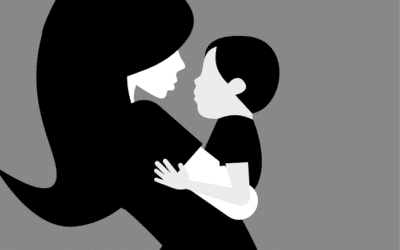Foster Children Endure Multiple Placements Due to Disruptions
The Spruce – April 4, 2017
by Carrie Craft
It’s not something we like to think about as foster parents, but sometimes a placement just doesn’t work out. There are various reasons why foster care placements don’t work and disruption, or asking that a foster child is moved from the foster home, is something that foster parents don’t enjoy doing. And like allegations, it’s not a matter of if it happens, but when, because disruptions do occur, even for the most experienced and tolerant of foster homes.
Foster parents choose disruption of a foster placement for a number of reasons and not all have to do with the child’s behavior.
- Sometimes the foster parents need time to refocus. Foster care is hard work and often takes foster parents on difficult journeys. A particular placement may become taxing on the foster home and a foster parent may need to take the time to refocus on themselves, their home, or their relationships. Remember that providing foster care is a service and if it is becoming a drain on you, the foster parent, then it may be time to take a break. If possible try to hold on until the foster child is transitioned back with birth family or to an adoptive home. But, if it’s time to move on, then do what needs to be done and serve notice on the placement and have the child moved to another foster home.
- Sometimes the foster family needs to relocate. Foster parents may have to move due to their work. If they can remain close to the foster care agency, they are usually allowed to maintain the placement of the foster child, but if the family is moving out of state, then the placement is disrupted and the child is moved to a new foster home.
- The foster parent or someone within the family is sick or there is a death within the foster home. There are times when sickness occurs within the foster family, either with one of the family members or extended family members. I believe that foster children should see that during hard or difficult times family tries to stick together, but there are times when it may be too much for a foster family to continue with a foster placement. Try extended respite care to preserve the placement for the sake of the child, if that doesn’t work, choose to disrupt.
- The birth family, foster family, or other team members are at odds and it’s better for the case if the child is moved to a new foster home. This is an especially difficult situation to be in as a foster parent. Due to different personalities, there are times when a working relationship just doesn’t seem to be possible. Try your best to establish peace within the team, doing your part as a foster parent. If it doesn’t work out and brings more stress and chaos to your home, then it may be in the child’s best interest and that of your family’s to ask for the child to be moved to another foster home.
- The child’s behaviors or needs are draining on the foster family. One of the most common reasons foster parents choose to disrupt on a foster placement is that the child’s behaviors and needs are beyond their parenting capabilities.
- Some foster children may be violent toward the foster family’s pets or other children.
- Some foster children may continuously make allegations against the foster home adding stress to the family. Some foster children may sexually act out. Many foster parents find parenting sexualized behaviors very difficult to manage, especially with other children in the home. Not everyone is comfortable parenting such high needs. This behavior may put other children and pets in the home in danger.Some foster children have overall behaviors that are stressful.
It is very easy to judge foster parents who seem to give up on a child, but we all have our different thresholds. Disrupting on a child can be a very difficult decision to make as a foster parent, even when it’s the best decision to make for the foster family and child. It doesn’t mean that the foster parents don’t care about the child. It just means that that foster family can do no more to help the child and family, maybe there is someone else out there that can.



